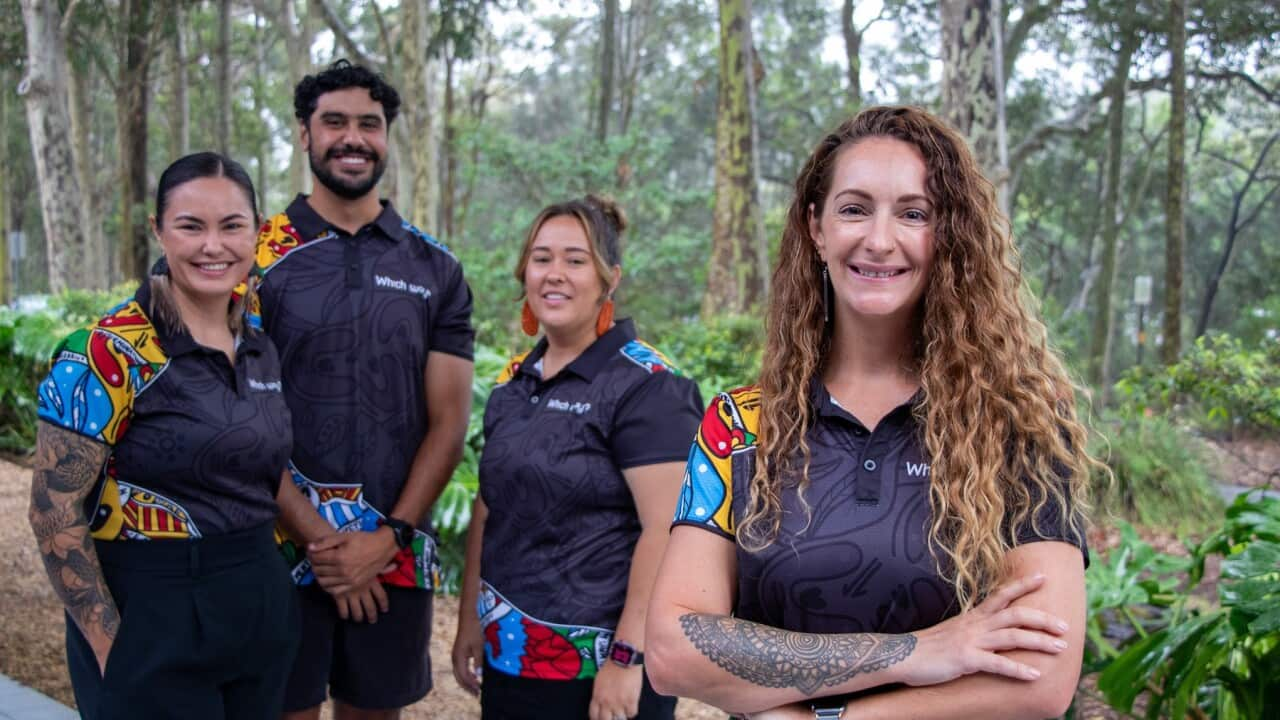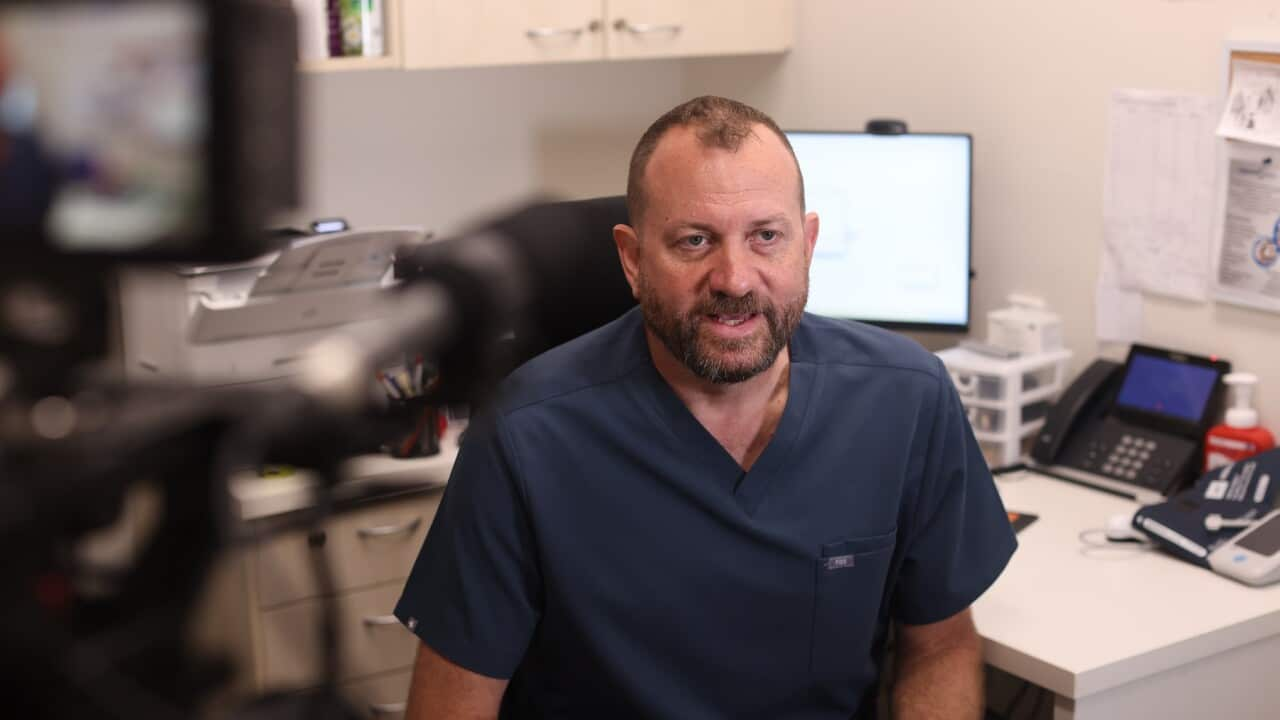TRANSCRIPT
Ned Wurf was first diagnosed with Crohn's disease when he was 19-years-old.
The now-35-year-old from Bendigo says having the condition affects many aspects of his life.
"Every day can vary in the severity of the disease, some days are better than others. You can be quite lethargic and quite tired, quite a lot of brain fog, a lot of pain, but it's quite inconsistent and it's quite uncontrollable as well and it can come on at a moment's notice. So that's quite hard to, I guess live your general life of a career driven life, family life as well or even a social life. It can be quite hard to juggle."
Crohn’s disease is a type of inflammatory bowel condition which causes swelling and inflammation inside your digestive tract leading to abdominal pain and diarrhoea.
The Hudson Institute of Medical Research suggests it affects around 60,000 people in Australia.
Crohn’s disease can develop at any age, but it usually first appears in people aged 15 to 30 years.
There is no cure for the condition, which means people like Ned can spend years looking for ways to manage the chronic disease.
"My experience with the condition has been quite up and down. Essentially, when I was first diagnosed I was quite highly medicated to try and treat the Crohn's disease. There were many years where that didn't work, be it there was a lot of intestinal issues, a lot of health issues that came along with that as well. But then later on in life, I'd been put onto a different medication, which seemed to work quite well for me."
Crohn's disease is a debilitating condition which can require life-long immunosuppression drugs and even surgery.
For Ned, a new trial at Monash University sparked renewed hope of an easy way to manage pain without being medicated.
The study aims to examine if a new diet could help reduce symptoms and inflammation in the disease.
Jessica Fitzpatrick is a dietitian and P-H-D candidate at Monash University Central Clinical School’s Department of Gastroenterology.
She says patients participating in the trial are given a variety of healthy meals.
"We're trying to investigate if one or both of our diets that we're using in this study can help to reduce the inflammation in Crohn's disease and improve patient's symptoms. Both diets follow healthy eating guidelines. So we provide meals for breakfast, lunch and dinner and a couple of snacks each day. And it's things like muesli, oats, high fiber breakfast cereals in the morning. Things like wraps, sandwiches, chicken and veggies, pies for lunch. And then dinner we've got salmon, barramundi, lamb shanks, a couple of vegetarian meals and chicken meals in there."
So what's different about this method?
Ms Fitzpatrick explains why current treatments aren't cutting it for patients with Crohn's disease.
"At the moment, the mainstay treatment for Crohn's disease is medical treatment. And some patients need surgery as well. These are people who are diagnosed quite young with Crohn's disease and long term medical therapy is not something that works but a lot of patients have a huge interest in dietary therapy. We have got a diet that works at the moment to induce remission in Crohn's disease, but it's a completely liquid diet and it works by excluding all food, essentially. So it's not that palatable to everyone and not that adherent I guess in social situations."
Crohn’s disease is an autoimmune condition - which means there is a problem with your immune system.
The exact cause of Crohn’s disease isn’t known, but genetics, infections and other environmental factors are thought to be important.
Wayne Massuger is the Head of Quality Research and Support Services at Crohn's and Colitis Australia.
He says cases of Crohn's disease are increasing - especially for younger people.
"Cases are increasing in Australia, and in particular in the young population. Some people think of it as a young person's disease because as a chronic disease it's commonly diagnosed between the ages of about 15 and 35. There's a report from earlier in the 2000s, which described the prevalence of both Crohn's disease and ulcerative colitis, which is a similar inflammatory bowel disease that increased from around 75,000 cases in Australia in 2012 up to nearly 89,000 cases in 2022."
While cases are growing amongst younger people, Mr Massuger says the disease is least evident in Indigenous and low-socio economic communities.
He says there is a lack of general knowledge about Crohn's in Australia, which can be especially dangerous for people in multicultural communities.
"It's more common in Australia in our advantaged socio economic groups. It's less common in Aboriginal and Torres Strait Islander community. Knowledge about Crohn's is low in the community overall. And in a sense that can lead to some delay in people being diagnosed - not recognizing symptoms and acting on that. There has been a gap in information about Crohn's disease in other languages in Australia. And so I think that is likely that knowledge about it is is low."
Crohn's and Colitis Australia has launched new resources in five languages to help close the health education gap faced by people in multicultural communities.
And for more stories on health you can now follow ‘SBS Health Headlines' in your podcast app.













